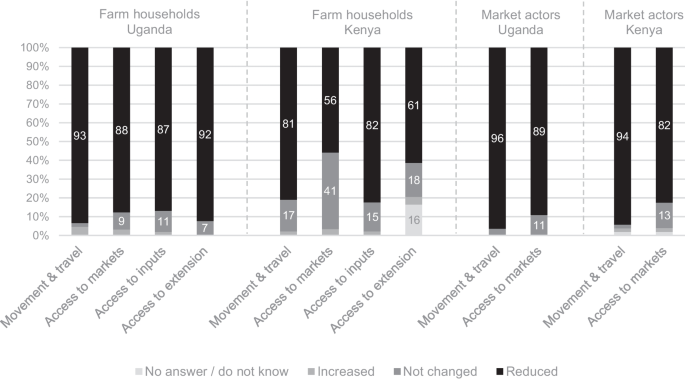Vulnerability and resilience among farmers and market actors in local agri-food value chains in the face of COVID-19 disruptions: findings from Uganda and Kenya
Abstract
Countries which imposed strict containment measures in response to the COVID-19 pandemic are thought to have faced particular socio-economic challenges. This study assesses the implications of COVID-19 disruptions on local agri-food value chain actors in Kenya and Uganda, as both countries enacted strict lockdowns to limit the spread of the virus. Using survey data from 527 smallholder farmers and 107 small-scale market actors, the study analyses these actors’ vulnerability and resilience. This is operationalised as (1) the exposure of respondents to COVID-19 containment measures, (2) effects of these measures as observed by respondents (e.g. on production or trade and income), and (3) (short-term) coping strategies used by respondents to deal with such impacts. Our results show how containment measures have restricted personal movement and transport options and have limited access to agricultural inputs and markets. This led to a decrease in agricultural production and local trading activities. While both farmers and market actors experienced massive negative income effects, market actors were being hit particularly hard as their livelihoods depend on free movement which was severely curtailed during the pandemic. Actors from both categories often tried to cope by selling livestock, using savings and lowering both food intake and food diversity. Coping strategies were thus short-term and further reduced actors’ resilience by exhausting their buffering capacity and exposing them to the risk of food insecurity.


 求助内容:
求助内容: 应助结果提醒方式:
应助结果提醒方式:


